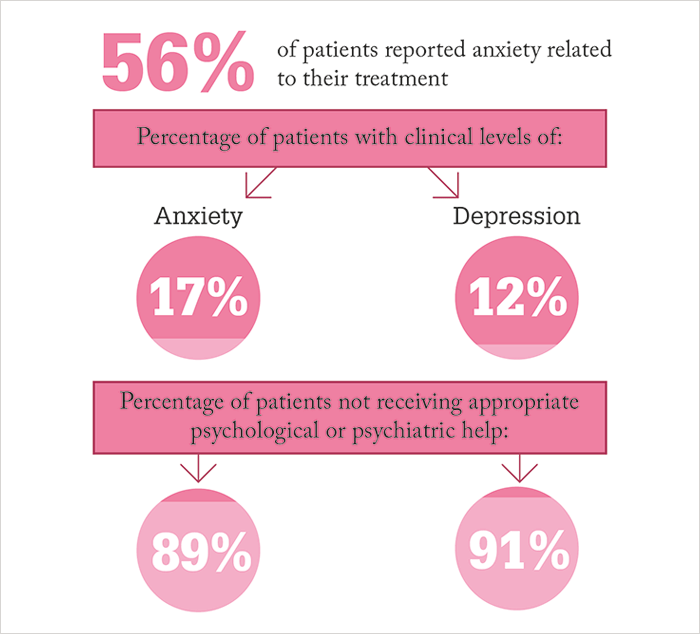
Anti-VEGF agents have revolutionized the treatment of neovascular age-related macular degeneration (AMD). But recently published research has suggested that it is not always enough to treat the visual problem – many patients also suffer anxiety and depression that persist despite improvements in vision (1). Increased awareness of these “hidden” symptoms could help identify patients at risk – as could better communication between clinicians and patients. Tariq Aslam is a consultant ophthalmologist at Manchester Royal Eye Hospital in the UK and lead author on the corresponding paper; when asked about the origins of the work, he recalls, “I was previously investigating a potential cutting-edge technology and was delighted to see that it helped maintain excellent vision for a patient. It was only during extensive discussions as part of the detailed trial protocol that I realized that this normally smiling and joking patient was actually suffering deep depression and psychological stress. We had helped her sight but had not appreciated her state of mind that possibly negated any ophthalmological benefits.” Realizing that there was a lack of information in this area, Aslam and his team decided to investigate.
Enrolling 300 patients with neovascular AMD who had received at least one prior injection of an anti-VEGF agent, the group used surveys to collect data on patients’ experiences and performed a variety of psychological assessments using validated questionnaires. They discovered that over half of the patients reported experiencing anxiety related to their treatment (Figure 1),the most common reasons being the fear of going blind and fear of treatment failure. Of the patients with clinical levels of anxiety and depression, a high proportion (~90 percent) were not receiving any appropriate psychological or psychiatric help. Aslam says, “The numbers of patients with undiagnosed and untreated depression and anxiety was of concern. I felt personally disappointed that I had not appreciated this before.” Highlighting the lack of research into how patients with neovascular AMD experience treatment, he adds “stem cells, bionics and genetics can often be judged as more ‘attractive’, irrespective of demonstrating definitive benefits to patients or significant advancements to the field. Clinical research outside these areas must not be left behind and should be equally appreciated as it has the potential to deliver a strong and immediate impact to patients.”
The group now plans to develop strategies to diagnose and manage anxiety and depression in patients, and then demonstrate their validity and utility in the clinic. In the meantime, he offers some practical advice: “Communication is important at all points in a patient’s journey through treatment cycles. Anxiety is not necessarily inevitable and some of the causes could be simply resolved. Severe depression and anxiety can occur and limit a patient’s quality of life irrespective of the vision improvements provided, so it is important that we work out ways to counter this within the constraints and pressures of busy practices.”
References
- H Senra et al., “Experience of anti-VEGF treatment and clinical levels of depression and anxiety in patients with wet age-related macular degeneration”, Am J Ophthalmol, [Epub ahead of print] (2017). PMID: 28302534.
